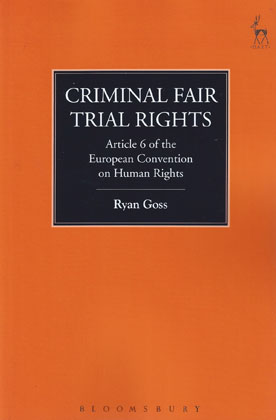
The Article 6 fair trial rights are the most heavily-litigated Convention rights before the Strasbourg Court, generating a large and complex body of case law. With this book, Goss provides an innovative and critical analysis of Strasbourg's Article 6 case law.
The category of 'fair trial rights' includes many component rights. The existing literature tends to chart the law with respect to each of these component rights, one by one. This traditional approach is useful, but it risks artificially isolating the case law in a series of watertight compartments.
This book takes a complementary but different approach. Instead of analysing the component rights one by one, it takes a critical look at the case law through a number of 'cross-cutting' problems and themes common to all or many of the component rights. For example: how does the Court view its role in Article 6 cases? When will the Court recognise an implied right in Article 6? How does the Court assess Article 6 infringements, and when will the public interest justify an infringement?
The book's case-law-driven approach allows Goss to demonstrate that the Court's Article 6 jurisprudence is marked by considerable uncertainty, inconsistency, and incoherence.